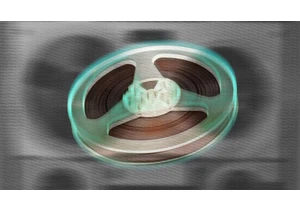The Planetary Science Caucus is back from the dead, and the revival of the group couldn’t come at a more critical time for scientific pursuits in the cosmos that often find themselves in the budgetary crosshairs.
A brief history
The Planetary Science Caucus existed in the 115th and 116th Congress (about 2017-2021 for those who follow the Gregorian calendar), but went away during the 117th Congress, between 2021 and 2023, according to Jack Kiraly, director of government relations at the Planetary Society.
Now, the group, which is holding its official kickoff tonight on Capitol Hill, is back and led by Rep. Judy Chu (D-CA) and Rep. Don Bacon (R-NE).
Right from the source
Amid the multitude of to-dos for Congress, why should planetary science be top of mind? Take it from Bacon himself.
“The thirst for knowledge and the drive to improve oneself has existed ever since the first person looked to the stars and the first explorer stepped out into a new frontier,” he said in a statement. “As the future continues to unfold before us, we owe a duty to our children, our grandchildren, and their descendants to drive our innovation by prioritizing exploration. There is no greater exploration than the final frontier.”
Nebraska isn’t typically top of mind when one thinks about traditional space states. Kiraly said Bacon’s leadership of the group “really demonstrates that enthusiasm for space science is strong and reaches beyond traditional pockets.”
Other side of the aisle
On the other hand, Chu comes from a space science hotbed in Southern California, with NASA’s Jet Propulsion Lab in her backyard. She helped spearhead a letter from California delegates last month urging the Office of Management and Budget to reverse cuts to Mars Sample Return, a flagship mission for NASA to bring pieces of the Red Planet to Earth for study.
Chu also lamented the recent layoffs at JPL, driven by Congress’s inability to pass a fiscal 2024 budget, saying that they will “hurt the long-term viability of not just our Mars Exploration Program, but also many years of scientific discovery to come.”
Primary documents
The price of the Mars Sample Return mission has grown from $2.5B to $6.2B to $7.4B as of June, according to a NASA inspector general report released last week. The watchdog also slammed the program for completing its preliminary design review in December—more than a year late.
The joint explanatory statement that accompanied FY24 minibus released Sunday provides a range of funding for the program as lawmakers try to get a handle on cost and schedule realities. NASA is directed to spend no less than $300M and up to $949.9M, which was the level requested by the administration. It also ordered the agency to report back with its plan for the mission after the independent review board response team completes its work.
“The report should include a year-by-year funding profile for MSR and any necessary reprogramming or transfer requests to support the re-scoped MSR program in fiscal year 2024,” the report says. “The agreement further directs NASA to not engage in further workforce reductions of the MSR program until such report is provided.”
Chu celebrated the passage of the bill, but said there’s more to be done, including urging NASA to see if it can bring back laid off JPL employees under the new budget agreement.
“I pledge to continue working with my congressional colleagues and the administration to ensure we fully fund MSR and continue promoting the kinds of scientific discovery JPL has been on the frontlines of for decades,” she said in a statement.
On the agenda
Of course protecting the Mars Sample Return budget is likely to be a top priority for the caucus, but Kiraly said he hopes lawmakers will champion missions beyond big ticket items based in traditional space states.
“What I really would like to see the caucus represent is the broad and diverse support network for planetary science and planetary exploration,” he said. “It’s not just JPL and APL. It’s a 50-state program with contractors and subcontractors in basically every state, plus the enthusiasm reaches to basically every congressional district.”
This story originally appeared on Payload and is republished here with permission.
Login to add comment
Other posts in this group

Founders and CEOs typically use social media to etch a human face onto their brand, forge a personal connection with potential customers, and put some pizzazz into product launches.
With

Tesla starts selling cars in Saudi Arabia on Thursd


Cars are about to get a lot more expensive. This startup wants to make your


Understanding intelligence and creating intelligent machines are grand scientific challenges of our times

